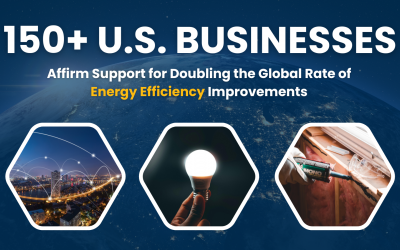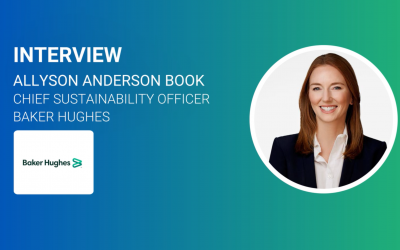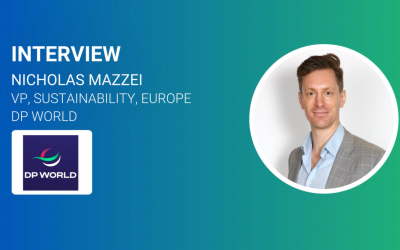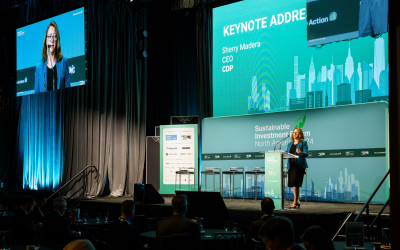Luc Olivier on the power of impact investing through public markets
Luc Olivier, Fund Manager of Echiquier Positive Impact Europe at La Financière de l’Echiquier (LFDE), talks to Climate Action about the power of impact investing through public markets and how this is integral to funding UN SDGs.

Luc Olivier, Fund Manager of Echiquier Positive Impact Europe at La Financière de l’Echiquier (LFDE), talks to Climate Action about the power of impact investing through public markets and how this is integral to funding UN SDGs.
The crisis we are going through reinforces one of our most deeply held convictions: that finance has a crucial role to play in creating a more sustainable and resilient ecosystem, building the world of the future, particularly impact investing on public markets. Impact investing, in our view, is essential to funding the United Nations’ Sustainable Development Goals (SDGs). 2.5 trillion euros will be needed to achieve these goals by 2030. An estimated 91% of these needs can only be met through public markets.
Investors needed nerves of steel in 2020. European compagnies with sterling ESG profiles proved to be better at weathering the crisis than others. Closely aligned with the SDGs, our impact investing strategy held up fairly well when the market crashed and was quicker to take advantage of the recovery. In our view, this resilience is particularly due to our approach, which places value on SRI criteria and seeks to generate a positive impact with respect to the SDGs.
Why do you think ESG and Impact investing will be major performance drivers in the future?
We firmly believe this According to the United Nations, the opportunities created by the main SDGs could reach $12 trillion by 2030. Some listed European companies are, in our view, in a good position to seize them. Our investment universe consists of a hundred or so companies that we analyse regularly. After applying our exclusion criteria, analysing ESG criteria and evaluating the contribution to the SDGs, we then select about forty stocks. Large caps account for two-thirds of our portfolio, which is 60% concentrated on growth stocks, 20% on cyclical stocks and the remaining 20% on underpriced securities known as value stocks*.
As not all SDGs are business-oriented, we focus our attention on two factors: the direct contribution a company makes toward achieving SDGs through its products or services, and the overall contributions that a company makes through its products and services. For instance, no product is able to contribute to SDG 5, Gender Equality, but a company’s human resources policies can.
Which SDGs are most represented in your strategy?
The two SDGs most represented in our strategy are SDG 3, Good Health and Well-Being, and SDG 12, Responsible Consumption and Production. Within the healthcare sector, we pay particularly close attention to three sub-sectors: diagnosis, which has become increasingly important during the pandemic, pharmaceuticals, and medical technology. In the area of responsible consumption, we are looking for companies that produce reusable materials that save on the resources used or offer alternatives to plastic. We are also interested in manufacturers of semiconductors, such as the German company, Infineon*, which manufactures components essential for renewable energy systems and contributes to SDG 7, Affordable and Clean Energy.
Which sectors are you investing in and how has digitalisation and the European Green Deal impacted investment decisions?
Investments in the healthcare sector continue to increase in the short, medium and long terms and today our exposure to this sector is very high. Furthermore, climate change remains a major concern of governments and private investors. With the Green Deal, the European Union is pursuing an ambitious climate policy, which is expected to enable it to become the first climate neutral region by 2050. Companies such as Michelin*, the French leader in sustainable mobility, or Covestro*, the materials producer, which offer solutions that contribute to meeting the climate challenge are expected to benefit under the plan. Lastly, digitalisation is expected to continue gaining ground. In addition, we remain particularly interested in companies doing business in cloud computing, or companies like the Spanish wireless telecommunication infrastructure operator, Cellnex*, whose growth benefits digitalisation. In our view, these three trends should become performance drivers sometime this year.
In your opinion is impact investing the new frontier of SRI?
LFDE is committed to actively contributing to the creation of impact financing and added a second solution to its range in 2020, for the purpose of funding the energy transition. LFDE is also a member of GIIN (Global Impact Investing Network), and is involved in collaborative engagement initiatives with PRI a UN-supported network of investors. The stakes are high, and the challenge is exciting.
* The securities and sectors mentioned above are given by way of example. There is no guarantee they will remain in the portfolio over time.
LDFE is a Strategic Partner at the Sustainable Investment Forum Europe in April, bringing together asset owners and managers, ratings agencies, banks, UN and Government policymakers, investors, development banks, think tanks, and NGOs committed to driving forward the sustainable finance agenda. Register your place for free here.






